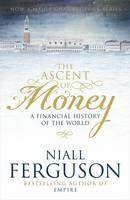
We are at the point in time when we are faced with a particularly fragile global banking system, a weakening global economy, very depressed and nervous equity and capital markets.
As you are undoubtedly aware, not least from the pervasive and extensive media coverage of recent months, it has been a particularly harrowing time in equity and credit markets. For the quarter, the MSCI Global Equity index returned -4.8%, Irish equity index -31.2% and Merrill Lynch Global bond index 4.5% * with almost all of these losses being incurred in September.
The ongoing bear market that commenced almost one year ago continues to have two overriding elements to it:
• The state of the global banking system?-Systemic risk
• The state of the global economy?-Cyclical risk
Whilst both of these ebb and flow in terms of headlines on a daily or weekly basis, there is absolutely no doubt but that the fear of a systemic failure of the global banking system has been THE key issue that has dominated markets thus far.
The Global Banking System:
The origins of the banking crisis over the last few months were in the collapse of the subprime market in the US, with the recent problems coming from the failure of the global financial system to adapt to the new operating environment.
FundingHistorically the basic operations of a bank involved taking in deposits and lending out these funds to trusted clients, carefully vetted by the internal credit department. The amount lent out was determined by the level of deposits taken in, with these items generally in equilibrium. In recent years, banks saw opportunities to earn additional income from interest on credit cards, brokerage commissions and asset management fees. As a result, there was less of a focus on deposit collection and a significant gap opened up between deposits and loans. European banks on average have a loan to deposit ratio of 130% which means that they need to find €1.5tr from non deposit funding sources. This funding has tended to be from the securitisation and interbank markets.
Securitisation is where banks package and sell off a portion of their loan book and earn a fee in return. Due to the collapse of the US sub-prime market, securitisation markets are closed, with no interested buyers for these securities.
The other source of funding is the interbank market, which is simply where banks lend to one another for a specified time period. The collapse of the sub-prime market in the US created a substantial level of write downs for the financial system. As well as being concerned about their own holdings in these high risk assets, banks were even more concerned that other banks to whom they lent (in the interbank market) would have a similar or even larger exposure to this toxic debt. Hence the interbank market simply dried up with banks unwilling to lend to each other due to a fear of the unknown.
As noted above, banks fund their loan book through deposits, securitisation and interbank funding. With securitisation and interbank funding both unavailable, the banks with large funding gaps were left in a perilous situation. The situation was even more perilous for banks who do not have access to any form of retail deposits. This is what created the crisis in the US investment banking sector, where the companies did not have the security of retail deposits, hence the demise of Bear Stearns and Lehman Brothers.
CapitalCapital is the other issue that needs to be discussed. The losses related to the sub-prime crisis led to a dramatic reduction in global bank capital. The losses were large and were taken as a once off hit rather than spread over a number of years. The banks were subsequently forced to raise additional capital to fill this hole and thus far over $440 billion has been raised. Regulators are likely to re-visit capital requirements following the various banking collapses and there will be further rights issues and placings ahead.
OutlookLooking into the future, the banking model has undoubtedly changed. Banks will be forced to place an increased emphasis on gathering deposits and lending growth will be curtailed as banks attempt to reduce their reliance on interbank funding and securitisation. Deposit gathering and risk management will recapture their once dominant role in banking activity. The various announcements of public sector support for the financial system should help to restore confidence and over time inter-bank lending will likely recommence. Banks will have to increase the level of capital to support their issue equity capital when markets recover but funding is still the bigger concern at this moment in time. The deteriorating macroeconomic environment will undoubtedly lead to an increased level of bad debts and bankruptcies over the coming years. All the issues discussed above will result in a period of slower loan growth, worsening credit quality and capital raisings and we have seen valuations adjusting to reflect this changed environment.
Market Outlook• Firstly, we are unquestionably in the midst of THE most uncertain financial environment that has faced the world in many many decades.
• Secondly, it is a time for much disciplined decision making. The volatility and rate of change of material facts is incredible. Take the Irish banking sector’s performance this week alone; despite a 46% fall on Monday, at the time of writing Anglo Irish bank’s stock is up almost 20%!! Global authorities have and are waking up quickly to the challenges currently being faced.
• Thirdly, our key challenge is weighing up the balance between the major uncertainties/risks in the global macro-economic system versus the medium term investment opportunity afforded by assets that are at multi decade lows. At present “risk assets” (equities for example) look cheap, and especially versus cash and government bonds, both of which have attracted safe haven status
Previously outlined events dominating markets:
• The state of the global banking system?-Systemic risk
• The state of the global economy?-Cyclical risk
Over coming months the focus will switch from systemic to cyclical concerns. The two are obviously linked, particularly with the dent to confidence and activity levels that the credit crunch has inflicted on the economy. We are closer and closer to solutions to the systemic banking crisis that should safeguard the system.
Cyclically, the outlook is now most likely for a G7 recession though we will probably avoid a global recession. Cyclical markets and economies are normal and demand lower risk premia than the less frequent systemic crisis scenarios. Our outlook for the next 6 months in that scenario considers:
Negatives:• The downturn has been led by the banking sector and a deflation of asset prices. Past experience shows that asset deflation cycles take much longer to recover from as deleveraging in itself has very negative dampening affects.
• We face much nastier economic numbers in all western economies. The markets are good leading indicators of what is still to come.
• We face significant earnings downgrades as companies report their earnings and analysts cut their earnings estimates much more than they have so far.
• In a cyclical sense bank funding will remain very difficult to obtain.
• Overall confidence is sapped.
• The levels of uncertainty generally, is causing investors to keep selling equities and demanding higher risk premiums.
Positives:• Inflation which was a major concern during the early summer as commodity prices soared, is falling quickly.
• Over coming months as in any normal cycle, we expect relatively aggressive interest rate cuts from many central banks including the ECB, BOE and probably the FED.
• Valuations of equities look cheap, even allowing for the poorer earnings outlook. On measures such as dividend yield some of the European equity markets are now yielding more than their equivalent government bonds, which is very unusual and can be argued as very bullish for equities.
In the short term, I believe that the passing of the US bill, depressed levels of fear and sentiment and very oversold technical levels on markets would mean we could see a 10% or so bounce in equities. Beyond that I believe we remain in a cyclical bear market as despite the positives above, the biggest challenge to being positive on equities is to the timing of going positive. I believe we are too early in the cyclical downturn for markets to enter a new bull market as we need time to work through some of the issues outlined above.
Whilst we are not out of the woods yet that we have been through the most difficult and volatile part, and that the next cyclical phase whilst not overly positive is not as depressing as the phase we have come through
Source: KBC Asset Management.
*Source: Merrill Lynch > than 5 year global bond index
 Are you a DIY investor? If so how are you feeling now? Pretty stressed I imagine and your emotions will swing between denial, fear and blame which is probably resulting in portfolio paralysis. This response is not rational, this is the time to do something and that thing would be to seek advice. If you think you don't need an advisor ask yourself the following questions;
Are you a DIY investor? If so how are you feeling now? Pretty stressed I imagine and your emotions will swing between denial, fear and blame which is probably resulting in portfolio paralysis. This response is not rational, this is the time to do something and that thing would be to seek advice. If you think you don't need an advisor ask yourself the following questions;








































































